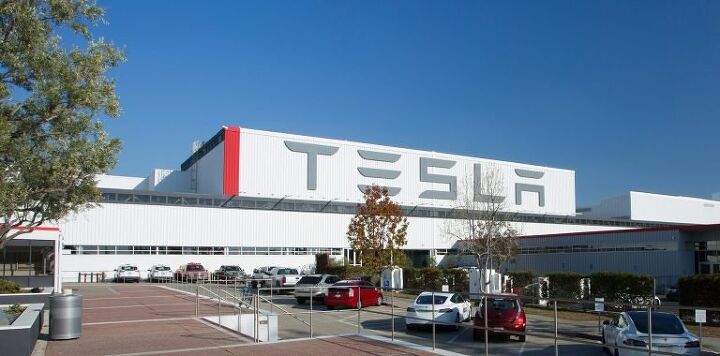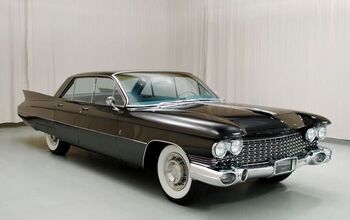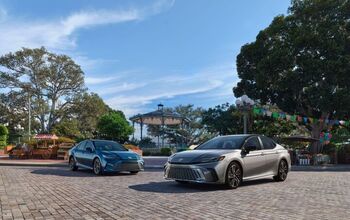Does Tesla Have an Obligation to Close the Fremont Plant?

Tesla has earned no shortage of criticism for being the only American manufacturer yet to suspend production as a result of the coronavirus pandemic. Rather than enact a full-blown shutdown, the California-based automaker opted to reduce its active workforce to just 2,500 employees — about a quarter of its total strength.
Six counties in the San Francisco Bay Area have issued a “shelter-in-place order” aimed at curtailing the spread of the novel coronavirus. Tesla’s Fremont facility is located in Alameda County — one of the municipalities telling residents to stay in their homes and close all nonessential businesses. Noticing that the factory had failed to comply with the notice, the Alameda County Sheriff’s Office tweeted out that Tesla was “not an essential business as defined in the Alameda County Health Order.”
But we’re not even sure what the company is legally obligated to do.
The Alameda County Sheriff’s Office ended its message by saying the business can still “maintain minimum basic operations per the Alameda County Health Order.” Digging into the referenced document, we learned the following from Section 10:
For the purposes of this Order, “Minimum Basic Operations” include the following, provided that employees comply with Social Distancing Requirements as defined this Section, to the extent possible, while carrying out such operations:
i. The minimum necessary activities to maintain the value of the business’s inventory, ensure security, process payroll and employee benefits, or for related functions.
ii. The minimum necessary activities to facilitate employees of the business being able to continue to work remotely from their residences.
It sounds as though Tesla has a bit of leeway in terms of how it can run things amid the health crisis, though the order also stipulates that failures to comply with the rules are a misdemeanor and could be met with a fine, imprisonment, or both. Considering the way the Bay Area’s shelter-in-place order has been covered in the media, you’d be forgiven for any confusion.
Bloomberg recently published an opinion article suggesting there were no legal implications involved with health orders in California (before detouring rather quickly into what constitutes martial law). Meanwhile, local outlets frequently discuss the situation as if all rules are mandatory — which may be true, depending on the how local authorities handle things. But the longer Tesla resists, the more articles pop up asking what penalties the automaker will incur.
Even the history of the term “shelter in place” doesn’t offer much help. All previous instances where the phrase is used references it as a warning — not an order — and most seemed to have taken place within California over the last decade. That’s an important distinction. The term “warning” implies the expectation of compliance without ramifications, the term “order” does not.
According to the LA Times, Tesla is sticking with the narrative that there has been conflicting guidance coming from the federal government. It also seems to view itself as an essential business. “People need access to transportation and energy, and we are essential to providing it,” explained Tesla HR boss Valerie Capers Workman. The article has since been updated several times (obnoxiously, without indicating changes in new drafts) but manages to paint the clearest picture of the situation thus far.
Elon Musk’s opinion seems to be that fears of the pandemic are overblown. On March 6th, he tweeted out that “ the coronavirus panic is dumb.” This week, he told his workforce that he’d rather they stay home if they were genuinely afraid (or sick) while suggesting the virus wouldn’t surpass 0.1 percent of the population. “I will personally be at work, but that’s just me,” he said in an email to staff.
His opinion might have something to do with Tesla’s financial situation. The company’s stock has shed over half its value since February 21st. Thanks to an investment round earlier this year, the company should have a few billion in reserve to weather a temporary shutdown. Still, that likely won’t matter if the entire country stays closed for more than a couple of months. Chinese auto sales were down 80 percent in February vs the previous year. But COVID-19 also spread through the region unchecked for at least a month, suggesting the U.S. might fare better under aggressive countermeasures — though perhaps not so aggressive as China implemented (human rights and all that).
I’m not defending Tesla; I accused the entire company of theft less than 24 hour ago, but the rules surrounding these public health orders exist in a gray mist nobody seems capable of navigating. It may be because there’s been no precedent for something like this since the Spanish Flu took the world by storm in 1918. Ideally, everyone does their part to avoid spreading the virus, though it’s not surprising to see pushback from parties concerned about their bottom line — especially since the rules are foggy and could upend one’s business.
Alameda County spokesman Ray Kelly said Wednesday that the company had again been informed that it can no longer continue operations as usual. “Tesla is not going to decide what the law is,” he said before adding that the Fremont Police will handle enforcement of the county’s health mandate. It looks like the department is working with both “the Alameda County Public Health Department and Federal Government to better understand and interpret their guidelines in the face of a variety of other state and federal regulations.”
So it doesn’t seem to know the rules, either.
[Image: Tesla]

A staunch consumer advocate tracking industry trends and regulation. Before joining TTAC, Matt spent a decade working for marketing and research firms based in NYC. Clients included several of the world’s largest automakers, global tire brands, and aftermarket part suppliers. Dissatisfied with the corporate world and resentful of having to wear suits everyday, he pivoted to writing about cars. Since then, that man has become an ardent supporter of the right-to-repair movement, been interviewed on the auto industry by national radio broadcasts, driven more rental cars than anyone ever should, participated in amateur rallying events, and received the requisite minimum training as sanctioned by the SCCA. Handy with a wrench, Matt grew up surrounded by Detroit auto workers and managed to get a pizza delivery job before he was legally eligible. He later found himself driving box trucks through Manhattan, guaranteeing future sympathy for actual truckers. He continues to conduct research pertaining to the automotive sector as an independent contractor and has since moved back to his native Michigan, closer to where the cars are born. A contrarian, Matt claims to prefer understeer — stating that front and all-wheel drive vehicles cater best to his driving style.
More by Matt Posky
Latest Car Reviews
Read moreLatest Product Reviews
Read moreRecent Comments
- Probert They already have hybrids, but these won't ever be them as they are built on the modular E-GMP skateboard.
- Justin You guys still looking for that sportbak? I just saw one on the Facebook marketplace in Arizona
- 28-Cars-Later I cannot remember what happens now, but there are whiteblocks in this period which develop a "tick" like sound which indicates they are toast (maybe head gasket?). Ten or so years ago I looked at an '03 or '04 S60 (I forget why) and I brought my Volvo indy along to tell me if it was worth my time - it ticked and that's when I learned this. This XC90 is probably worth about $300 as it sits, not kidding, and it will cost you conservatively $2500 for an engine swap (all the ones I see on car-part.com have north of 130K miles starting at $1,100 and that's not including freight to a shop, shop labor, other internals to do such as timing belt while engine out etc).
- 28-Cars-Later Ford reported it lost $132,000 for each of its 10,000 electric vehicles sold in the first quarter of 2024, according to CNN. The sales were down 20 percent from the first quarter of 2023 and would “drag down earnings for the company overall.”The losses include “hundreds of millions being spent on research and development of the next generation of EVs for Ford. Those investments are years away from paying off.” [if they ever are recouped] Ford is the only major carmaker breaking out EV numbers by themselves. But other marques likely suffer similar losses. https://www.zerohedge.com/political/fords-120000-loss-vehicle-shows-california-ev-goals-are-impossible Given these facts, how did Tesla ever produce anything in volume let alone profit?
- AZFelix Let's forego all of this dilly-dallying with autonomous cars and cut right to the chase and the only real solution.


































Comments
Join the conversation
C/D is reporting Tesla is suspending production at this plant after all.
No. It is free country.